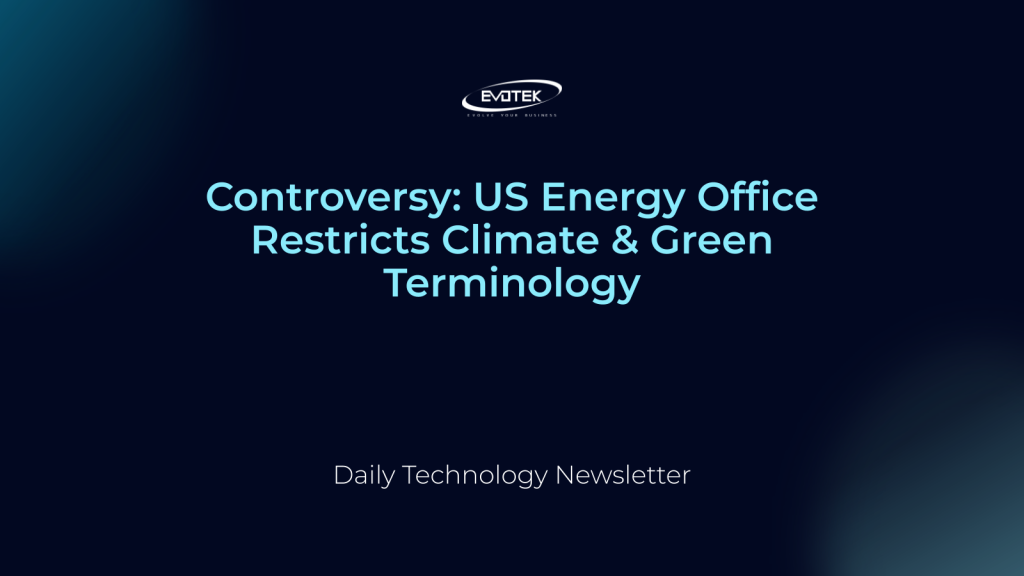A recent directive from a key division within the U.S. Energy Department has reportedly instructed staff to avoid several common terms central to environmental discussions, including “climate change,” “green,” and “emissions.” This move by the Office of Energy Efficiency and Renewable Energy (EERE) marks the latest in a series of actions by the Trump administration to reframe or downplay the discourse surrounding global warming.
According to an internal email obtained by POLITICO, the “list of words to avoid” also encompasses terms such as “decarbonization,” “energy transition,” “sustainability/sustainable,” “‘clean’ or ‘dirty’ energy,” “Carbon/CO2 ‘Footprint’,” and “Tax breaks/tax credits/subsidies.” This guidance, issued by acting director of external affairs Rachel Overbey, emphasized the need for all team members to align communications with the Administration’s perspectives and priorities.
The significance of this directive is particularly striking given EERE’s foundational mission. The office is a primary federal investor in innovative technologies designed to curtail heat-trapping emissions – the main drivers of climate change – and mitigate pollution from fossil fuels. Consequently, the prohibited vocabulary directly addresses the core objectives and scientific underpinnings of EERE’s work.
These instructions extend to both public-facing and internal communications, impacting crucial documents like requests for information for federal funding opportunities, official reports, and briefings. Specifically, officials were reportedly advised against using “emissions” to avoid implying any negative connotations, despite scientific consensus linking rising greenhouse gas emissions, primarily from burning oil, coal, and natural gas, to global warming.
However, a spokesperson for the Energy Department, Ben Dietderich, later stated that the department has not officially prohibited the use of these words. He indicated that the department would investigate the email’s validity and take corrective measures if necessary to address any perceived official direction.
This internal policy emerges shortly after President Donald Trump’s address at the United Nations General Assembly, where he criticized global leaders for their pursuit of climate action. During his speech, President Trump reportedly stated, “I’ve been right about everything and I’m telling you that if you don’t get away from the green energy scam, your country is going to fail.”
Further reflecting the administration’s stance, Energy Secretary Chris Wright has also actively sought to challenge prevailing climate science. He commissioned and promoted a report that largely downplayed the role of escalating emissions in worsening extreme weather events. Secretary Wright has also supported some of the report’s more contentious claims, including the idea that the potential advantages of a warmer planet are often undervalued.
In a broader context, the Energy Department under the current administration has been instrumental in efforts to scale back renewable energy subsidies and incentives. Just last week, Secretary Wright reportedly canceled $13 billion in funding earmarked for various renewable energy projects. He also criticized wind and solar incentives, which, despite decades of existence, are slated for a rapid sunset under new Republican legislation. “If you can’t rock on your own after 33 years, maybe that’s not a business that’s going places,” Wright commented at a press conference.

 日本語
日本語 한국어
한국어 Tiếng Việt
Tiếng Việt 简体中文
简体中文